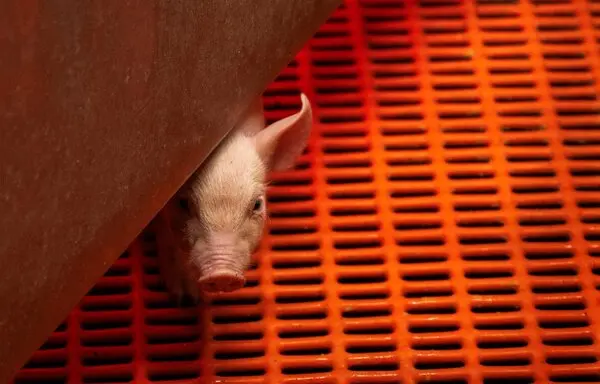In a historic breakthrough that could revolutionise the medical field, the United States Food and Drug Administration (FDA) has approved clinical trials for pig kidneys to be transplanted into humans. This approval paves the way for gene-edited pig organs to be tested as a viable solution to the country’s worsening organ shortage, particularly kidney donations.
More than 100,000 individuals in the United States are currently awaiting organ transplants, with over 90,000 of them requiring kidneys. The approval, announced on February 5, 2025, has ignited hope among doctors, patients, and scientists alike, as it represents a major step toward alleviating the crippling shortage of transplantable organs.
Two biotechnology companies—United Therapeutics and eGenesis—have spearheaded the development of genetically engineered pig kidneys. These companies have been conducting experimental procedures since 2021, first using brain-dead patients and more recently moving on to living individuals. The approval allows United Therapeutics to proceed with trials, potentially leading to the first commercial pig-to-human kidney transplants.
Leigh Peterson, Executive Vice President of United Therapeutics, hailed the approval as a monumental achievement. “This is a significant step forward in our relentless mission to expand the availability of transplantable organs,” Peterson said in a statement. “We are thrilled to advance this technology, with the ultimate goal of saving thousands of lives.”
The first transplant is slated for mid-2025, with the trial initially enrolling six patients suffering from end-stage renal disease (ESRD), a condition where the kidneys are no longer able to function properly. If successful, the trial could expand to include as many as 50 patients.
Meanwhile, eGenesis, a rival biotech company, received FDA approval in December 2024 for its own study, which will involve three patients with kidney failure. Their study will focus on individuals who are listed for kidney transplants but have a low chance of receiving an organ from a deceased donor within the next five years.
Xenotransplantation—the process of transplanting organs from one species to another—has been a goal for scientists for decades. While earlier experiments with primates had mixed results, recent advancements in gene editing and immune system management have brought xenotransplantation to the brink of feasibility.
Pigs have emerged as the ideal candidate for organ donation due to their rapid growth, high reproductive rates, and their similarity to human organs. As the demand for organs continues to far outstrip the supply, some experts argue that pig organs could be the answer to this crisis. “We are hopeful that this breakthrough will lead to a new era in organ donation,” said Dr. Alan Morris, a leading surgeon in the field.
However, experts acknowledge the potential risks of xenotransplantation, including the possibility of zoonotic infections—diseases that can jump from animals to humans. Both United Therapeutics and eGenesis have stated that trial participants will be carefully monitored for life, with a focus on assessing kidney function, survival rates, and any signs of animal-to-human disease transmission.
The trials come after the success of one groundbreaking pig organ transplant. In November 2024, Towana Looney, a 53-year-old woman from Alabama, became the first living human recipient of a pig kidney. Looney, who had been battling end-stage kidney failure, received the gene-edited kidney from United Therapeutics. As of early February 2025, Looney has survived for over 70 days with the transplant, setting a new record for the longest time a person has lived with a pig organ.
“It’s been nothing short of miraculous,” Looney shared in an interview with local reporters. “Every day is a gift, and I’m so grateful for this chance at life.”
Her success story has fueled optimism among doctors and patients alike. David Bennett, a 57-year-old from Maryland, had previously received a pig heart transplant in 2022 but only survived for 60 days. While Bennett’s case ended tragically, it nonetheless proved that xenotransplantation is possible.
The trials and the recent successes have sparked debates within the medical community. While some argue that the risks associated with pig organ transplants are too great, others believe the potential benefits far outweigh the dangers, particularly given the overwhelming shortage of human donor organs.
“For patients who face the risk of dying while waiting for a suitable organ, the approval of pig organ trials could offer a life-saving alternative,” said Dr. Margaret Okoro, a Nigerian-born transplant surgeon based in the US. “We are entering uncharted territory, but the potential to save lives is too significant to ignore.”
In the coming years, as trials progress, the world will closely watch these experiments to see if pig organs can become a reliable, ethical solution to the growing crisis of organ shortages. The FDA’s approval represents not just a breakthrough in science but also a beacon of hope for thousands of patients who may otherwise never receive the organs they desperately need.
With the success of gene-edited pig kidneys hanging in the balance, the outcome of these trials could change the future of organ donation worldwide, offering new life to countless patients struggling to survive while waiting for a human donor. For many, it’s a hope they’ve been waiting for—and the beginning of a new chapter in medical history.

